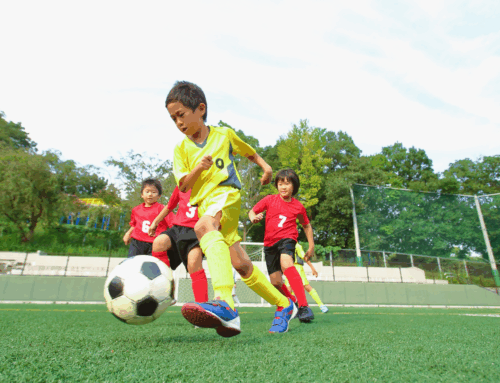Get our exclusive report. Download the iSport360 Club Switching Report Here – For Club Admins, Rec Leaders and Coaches.
Why Local Youth Sports Programs Matter More Than Ever
When you drive through neighborhoods, you’ll often see the same heartwarming scenes: kids running across soccer fields, parents cheering from bleacher stands, and coaches high-fiving young athletes after a game well-played. These community-based youth sports programs represent far more than weekend entertainment—they’re the backbone of healthy child development and vibrant communities.
Building More Than Athletes
Community youth sports programs create something that expensive private clubs and elite academies often struggle to replicate: genuine connections between families, neighbors, and local businesses. When the local hardware store sponsors a Little League team or when parents volunteer to coach their neighbor’s children, these programs weave the social fabric that makes communities strong.
Unlike competitive travel teams that can cost thousands of dollars per season, community programs prioritize accessibility and inclusion. They operate on the fundamental belief that every child deserves the opportunity to play, learn, and grow through sports—regardless of their family’s economic situation or athletic ability.
The Developmental Sweet Spot
Research consistently shows that children benefit most from sports experiences that emphasize fun, skill development, and positive relationships over winning at all costs. Community programs naturally create this environment because they’re run by volunteer coaches who live in the neighborhood and understand that they’re working with their friends’ and neighbors’ children.
These programs typically offer:
Age-appropriate competition where 8-year-olds aren’t subjected to the pressure of championship tournaments, but instead focus on learning basic skills and enjoying the game.
Diverse skill levels on the same team, teaching children to support teammates who may be stronger or weaker than themselves—a lesson that extends far beyond sports.
Local rivalries that build excitement without the intensity that can make youth sports stressful rather than enjoyable.
Shorter travel distances that allow families to participate without the significant time and financial commitments required by travel teams.
Academic and Social Benefits
The connection between youth sports participation and academic success is well-documented, but community programs offer unique advantages in this area. Local coaches often know their players’ teachers and can communicate about academic progress. Many community programs require grade checks and provide tutoring support, creating a holistic approach to child development.
Socially, these programs help children develop friendships with peers from their own neighborhoods—relationships that extend beyond the playing field. When children play with kids they see at school, in their neighborhoods, and at local events, sports become part of a broader community experience rather than an isolated activity.
Economic Impact and Sustainability
Community youth sports programs create positive economic impacts that ripple throughout local areas. Families spend money at local restaurants before and after games, hardware stores sell equipment and supplies, and local photographers capture team pictures. These programs keep recreational dollars circulating within the community rather than flowing to distant tournament destinations.
The volunteer-driven model also creates sustainability that purely commercial programs often lack. When parents, grandparents, and community members invest their time in coaching, organizing, and maintaining facilities, programs develop deep roots that help them weather economic challenges and leadership transitions.
Addressing Modern Challenges
Today’s children face unprecedented challenges: increased screen time, reduced unstructured play, and social isolation that became more pronounced during recent global events. Community youth sports programs provide antidotes to these modern childhood challenges.
Regular practices and games create structured physical activity that many children lack in their daily lives. Team sports require face-to-face interaction, communication, and cooperation—skills that can’t be developed through digital devices. The routine of weekly practices and games provides stability and predictability that benefits children’s emotional development.
Supporting Working Families
Community programs often provide practical support that working families desperately need. Many offer before and after-school care in conjunction with sports activities, helping parents manage work schedules while ensuring their children are engaged in positive activities.
The local nature of these programs also reduces transportation challenges. When practices and games occur within the neighborhood, older siblings can walk to activities, parents can coordinate carpools more easily, and families spend less time driving across town to various athletic commitments.
Creating Lifelong Connections
Perhaps most importantly, community youth sports programs create connections that last far beyond childhood. Adults who played in local leagues often return as coaches, board members, and supporters. They send their own children through the same programs, creating generational connections that strengthen community bonds.
These programs also provide opportunities for diverse families to interact in positive settings. When families from different backgrounds come together to support their children’s teams, natural relationships develop that might not occur otherwise. Sports become a common language that helps build understanding across cultural, economic, and social differences.
The Volunteer Advantage
The volunteer nature of community programs creates unique mentorship opportunities. Children benefit from working with coaches who aren’t paid professionals but are instead neighbors who care about their community’s young people. These volunteer coaches often bring diverse professional backgrounds and life experiences that enrich the sports experience.
Children learn that adults in their community are willing to give their time and energy to help them succeed. This lesson in community support and civic engagement often inspires young people to become volunteers themselves as they mature.
Looking Forward
As youth sports continue to evolve toward increased specialization and commercialization, community-based programs provide essential balance. They remind us that sports can be vehicles for community building, character development, and childhood joy without requiring significant financial investment or year-round commitment.
Communities that invest in these programs—through volunteer time, modest financial support, and facility maintenance—create assets that benefit families for generations. They provide gathering places where neighbors become friends, children develop confidence and skills, and communities build the social connections that make them resilient and vibrant.
Making It Happen
Supporting community youth sports doesn’t require athletic expertise or significant financial resources. Communities can strengthen these programs by:
- Volunteering to coach, even without previous experience (training is usually provided)
- Helping with administrative tasks like registration, scheduling, or equipment management
- Supporting local fundraising efforts or sponsorship opportunities
- Advocating for quality public recreational facilities and maintenance
- Encouraging inclusive policies that ensure all children can participate regardless of ability or economic circumstances
The investment in community youth sports programs pays dividends that extend far beyond the playing fields. These programs create stronger communities, healthier children, and more connected families. In an era when many forces seem to divide communities, youth sports remain one of the most effective ways to bring people together around shared values and common goals.
When we support community-based youth sports, we’re not just helping children learn to play games—we’re helping them learn to be part of something bigger than themselves, to support their neighbors, and to contribute to the places they call home.
About the Author:
Amy Masters is a proud sports mom, seasoned coach, and dedicated club administrator with over a decade of experience in youth athletics. She launched Jr Lions Field Hockey in Hunterdon County, growing it from just 40 players in its first season to over 150 by year three. Fueled by the growing passion and competitive spirit of local athletes, she went on to found Omega Field Hockey Club, now serving players across New Jersey and Pennsylvania.
A former collegiate athlete herself, Amy played field hockey at Lock Haven University, where her love for the game truly took root. Off the field (and somehow still finding time), she leads marketing for iSport360 and co-edits the Youth Sports Survival Guide—the largest youth sports newsletter in the world.
Learn more or request a demo of our youth sports software that is helping teams improve communication, organization and player development.
June 21, 2025





